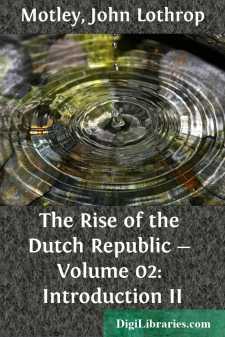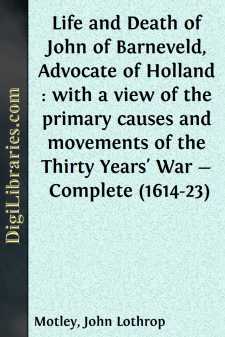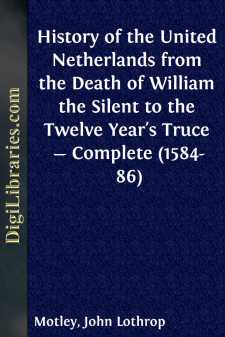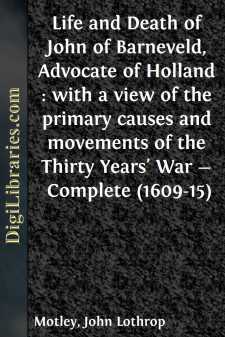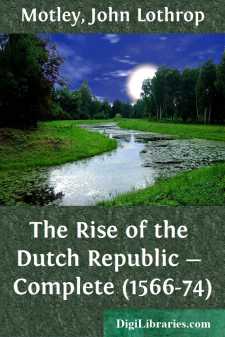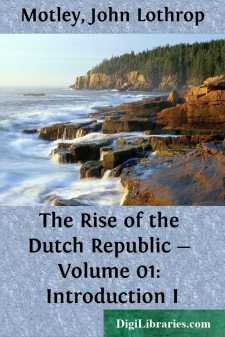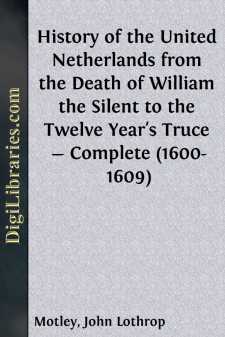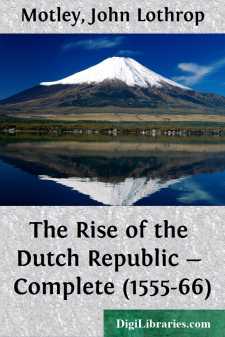Categories
- Antiques & Collectibles 13
- Architecture 36
- Art 48
- Bibles 22
- Biography & Autobiography 813
- Body, Mind & Spirit 142
- Business & Economics 28
- Children's Books 17
- Children's Fiction 14
- Computers 4
- Cooking 94
- Crafts & Hobbies 4
- Drama 346
- Education 46
- Family & Relationships 57
- Fiction 11829
- Games 19
- Gardening 17
- Health & Fitness 34
- History 1377
- House & Home 1
- Humor 147
- Juvenile Fiction 1873
- Juvenile Nonfiction 202
- Language Arts & Disciplines 88
- Law 16
- Literary Collections 686
- Literary Criticism 179
- Mathematics 13
- Medical 41
- Music 40
- Nature 179
- Non-Classifiable 1768
- Performing Arts 7
- Periodicals 1453
- Philosophy 64
- Photography 2
- Poetry 896
- Political Science 203
- Psychology 42
- Reference 154
- Religion 513
- Science 126
- Self-Help 84
- Social Science 81
- Sports & Recreation 34
- Study Aids 3
- Technology & Engineering 59
- Transportation 23
- Travel 463
- True Crime 29
The Rise of the Dutch Republic - Volume 02: Introduction II
Description:
Excerpt
Five centuries of isolation succeed. In the Netherlands, as throughout Europe, a thousand obscure and slender rills are slowly preparing the great stream of universal culture. Five dismal centuries of feudalism: during which period there is little talk of human right, little obedience to divine reason. Rights there are none, only forces; and, in brief, three great forces, gradually arising, developing themselves, acting upon each other, and upon the general movement of society.
The sword—the first, for a time the only force: the force of iron. The "land's master," having acquired the property in the territory and in the people who feed thereon, distributes to his subalterns, often but a shade beneath him in power, portions of his estate, getting the use of their faithful swords in return. Vavasours subdivide again to vassals, exchanging land and cattle, human or otherwise, against fealty, and so the iron chain of a military hierarchy, forged of mutually interdependent links, is stretched over each little province. Impregnable castles, here more numerous than in any other part of Christendom, dot the level surface of the country. Mail-clad knights, with their followers, encamp permanently upon the soil. The fortunate fable of divine right is invented to sanction the system; superstition and ignorance give currency to the delusion. Thus the grace of God, having conferred the property in a vast portion of Europe upon a certain idiot in France, makes him competent to sell large fragments of his estate, and to give a divine, and, therefore, most satisfactory title along with them. A great convenience to a man, who had neither power, wit, nor will to keep the property in his own hands. So the Dirks of Holland get a deed from Charles the Simple, and, although the grace of God does not prevent the royal grantor himself from dying a miserable, discrowned captive, the conveyance to Dirk is none the less hallowed by almighty fiat. So the Roberts and Guys, the Johns and Baldwins, become sovereigns in Hainault, Brabant, Flanders and other little districts, affecting supernatural sanction for the authority which their good swords have won and are ever ready to maintain. Thus organized, the force of iron asserts and exerts itself. Duke, count, seignor and vassal, knight and squire, master and man swarm and struggle amain. A wild, chaotic, sanguinary scene. Here, bishop and baron contend, centuries long, murdering human creatures by ten thousands for an acre or two of swampy pasture; there, doughty families, hugging old musty quarrels to their heart, buffet each other from generation to generation; thus they go on, raging and wrestling among themselves, with all the world, shrieking insane war-cries which no human soul ever understood—red caps and black, white hoods and grey, Hooks and Kabbeljaws, dealing destruction, building castles and burning them, tilting at tourneys, stealing bullocks, roasting Jews, robbing the highways, crusading—now upon Syrian sands against Paynim dogs, now in Frisian quagmires against Albigenses, Stedingers, and other heretics— plunging about in blood and fire, repenting, at idle times, and paying their passage through, purgatory with large slices of ill-gotten gains placed in the ever-extended dead-hand of the Church; acting, on the whole, according to their kind, and so getting themselves civilized or exterminated, it matters little which. Thus they play their part, those energetic men-at-arms; and thus one great force, the force of iron, spins and expands itself, century after century, helping on, as it whirls, the great progress of society towards its goal, wherever that may be....


